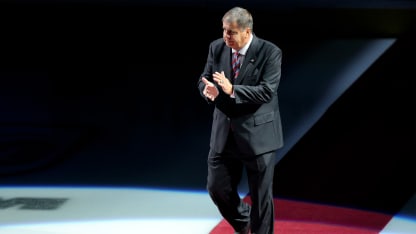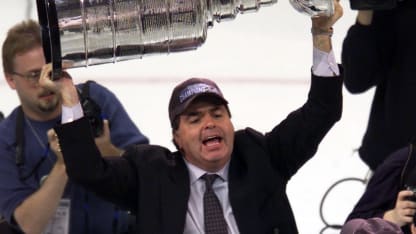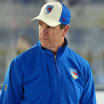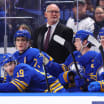Eric Lacroix credits his father Pierre for instilling the character traits that enabled him to play 472 NHL games over eight seasons after being selected in the seventh round of the 1990 NHL Draft. Pierre Lacroix founded his own player agency and went on to become a successful NHL general manager, building the 1995-96 and 2000-01 Stanley Cup champion Colorado Avalanche. Pierre Lacroix died Dec. 13, 2020, and will be inducted posthumously into the Hockey Hall of Fame in the Builder Category as a member of the class of 2023.
When you play in the NHL, people always ask you who helped you the most and it was obviously my dad. Me growing up with an unconventional childhood, in a sense that it was very common for me to be in the living room of my house and there is Patrick Roy with Denis Savard and Pierre Turgeon. For me, it was a normal upbringing, but for my friends it was a little bit crazy.
His agency was always a small, intimate agency, so there were people at the house all day long. For me it was interesting to see who made it to the NHL and who didn't and why. A lot of it comes down to character and the mindset of becoming a hockey player. It's not always just the first-rounders; one guy is a first-rounder and didn't make it and Patrick Roy was a third-rounder and made it. You could see their characters and at a young age you are able to put two and two together.
For me, I wasn't the best player, I wasn't a first-rounder, I ended up having a decent career when you look at longevity and I always attributed it to that. It was always about your attitude and it's so important and that's what helped me.
His methods worked. Whether it was through his agency that he was at for 25 years that he had built from the ground up, to the Quebec Nordiques and then Denver. The foundations of the company were built on family.
You have to have a method to your madness and he was big on family all the time. You can have all the ingredients but if you don't have a recipe then you have nothing, and a big part of his recipe was family.
A lot of people preach the word 'family,' but they don't really mean it and they don't really abide by it, but he was dead set on it and it was always at the forefront. That was the first thing you think about was the family, and how do we approach this in a family style? It proves that it does work.
It doesn't always have to be business, but there's a time to be business and I think that was a strength of his. He was able to be business when he had to, which is something that's hard to do if you worked in any business, not just in hockey. Sometimes there's decisions that need to be made and they're not easy, but he was able to do it.
He always talked about being surrounded with the best people, whether it was at home or at work. That went from the locker room to the staff that's in the locker room, to the people upstairs in management, to the scouts, everybody. It was a family atmosphere and it was surrounded by the people that made him better. He was never afraid of people bringing something to him. He was a guy that surrounded himself with quality, intelligent and great hockey people and that's a big reason he's in the Hall of Fame today.
My dad's agency was called Jandec; it's the same in English and French, January to December, because it was going to take 365 days a year 24/7 to be there for his clients. It was the same thing when he joined the Nordiques. He believed in his family recipe and he carried it with him to an NHL franchise. It was all about family, whether it was about their lives away from the rink to the people they hired to the people they traded for, it was always at the forefront; having kids at the rink for practice and letting the fathers be in the locker room with their kids. It was a good environment and it was always family first. Wives weren't any different; they were always at the forefront, they were always respected and they were always thought of by the team or by him.
Whether it was the birth of a child, anything personal was always important and the coaches followed suit to make sure everyone had the same philosophy, and it was great. I played for a few different organizations and you could tell here in Denver it was a little different, it was more accentuated towards the family side of things and it worked.



















